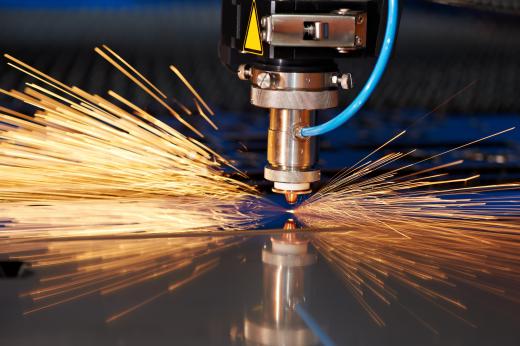In construction settings, sheet metal is often used to create ductwork, paneling, or even roofing sections. A sheet metal mechanic is a person who can fabricate parts from sheet metal and be responsible for the installation or repair of such components. Sometimes the sheet metal mechanic will have specific training in various types of sheet metal fabrication and installation, though in other cases, the mechanic's training is broader and involves fabricating any types of components from sheet metal. No specific level of education is necessary to be hired for such a position, though most mechanics have completed at least a high school education or equivalent qualification.
Many of the skills necessary to be successful in this position can be learned in high school shop classes, though once the candidate graduates from high school, it is likely he or she will undergo an apprenticeship or on the job training in order to become a sheet metal mechanic. Employers may hire candidates with little or no experience and then offer such training to help that person become a sheet metal mechanic, though a candidate can also improve his or her chances of securing an apprenticeship by learning as much as possible about sheet metal mechanics on his or her own.

Once training is complete, the sheet metal mechanic can work in a variety of construction or manufacturing settings. He or she can even work in aeronautical industries; the sheet metal mechanic may, for example, work in a factory that produces aircraft, or even spacecraft. Shipbuilding applications are possible, as are applications in the automobile industry. A metal fabricator can also work in a broader sense, lending his or her expertise to more than one area or industry. In construction settings, the mechanic may install complex ductwork in a building, install certain types of roofing, walls, and flooring, or complete other tasks that require sheet metal to be manipulated or fabricated.

In most applications, the sheet metal mechanic will need to have basic to moderate math and reading skills, and he or she must be able to read schematics or blueprints. Very often the mechanic must be well versed in taking direction, and he or she may need to get trained in the use of computer aided drafting, or CAD. The mechanic will usually need training in computer numeric control (CNC) processes and machine work, as many of the machines he or she will use are based on CNC platforms.
